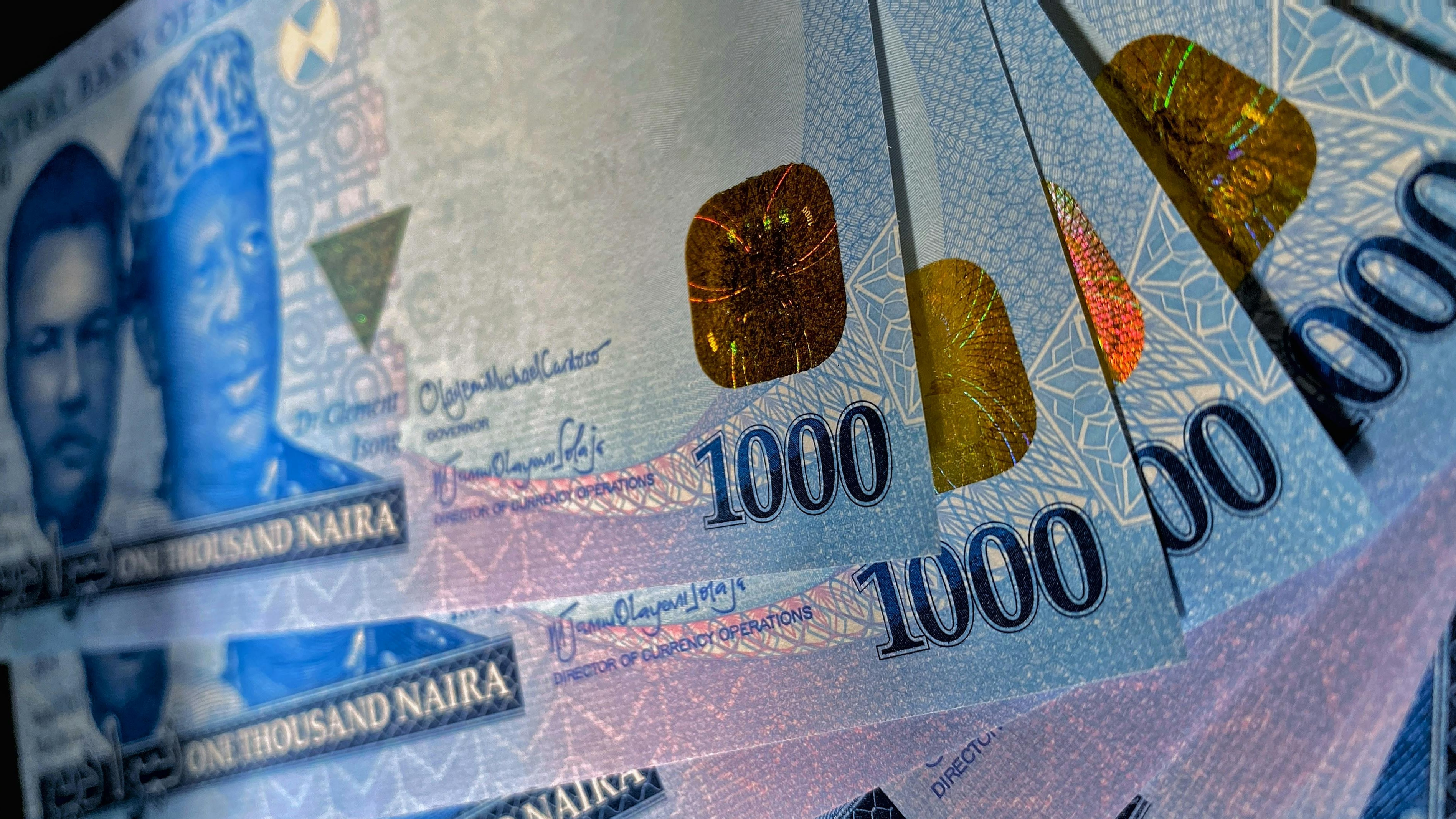Naira Depreciates- Why Nigeria’s Currency Ended the Week on a Negative Note

Image Credit: Pexels
12th April 2025 4 mins read Published By: Infohub
The Nigerian Naira closed the week on a negative note, depreciating further against the US Dollar in both the official and parallel markets. This persistent decline has raised concerns among businesses, investors, and everyday Nigerians grappling with rising inflation and economic uncertainty.
Advertisement
The Naira closed above ₦1,600 to $1 in the parallel and official market, a significant drop from ₦1,150 the previous week. According to the Central Bank of Nigeria, the Naira dropped to N1,603.78 against the dollar on Friday, down from N1,591.84 recorded on Thursday.
According to BDC operators in Abuja’s Wuse Zone 4, the parallel market rate held firm at ₦1,620 per dollar on Friday, matching the previous day’s closing figure.
Comparative weekly data shows the naira lost value across both official and parallel forex markets. In the official market, the currency declined by ₦36.76, closing at ₦1,603.78 per dollar on April 11 compared to ₦1,567.02 on April 4. The black market saw a more substantial drop of ₦60, with rates moving from ₦1,560 to ₦1,620 per dollar over the same period.
Discover More:
How Central Banks Use Interest Rates to Curb InflationWhy Is the Naira Falling?
- Forex Supply Shortages
Limited dollar inflows from oil exports and foreign investments keep pressure on the Naira. With oil prices volatile and non-oil exports struggling, the country’s dollar inflows are under strain.
- High Demand for Dollars
From importers to students paying foreign tuition, the demand for dollars remains relentless. This imbalance between dollar supply and demand continues to exert pressure on the Naira.
- Inflation & Economic Instability
Nigeria’s inflation rate, hovering around 23.18% as of February 2025, erodes confidence in the Naira. As prices soar, consumers and businesses hoard dollars as a hedge, further driving up demand.
- Policy Uncertainty
While the CBN has introduced measures to curb depreciation—like cracking down on illicit forex trading—mixed signals on monetary policy and exchange rate management have left investors jittery.
The CBN has signaled its commitment to stabilizing the currency through targeted interventions, such as boosting dollar supply to Bureau de Change operators. Efforts to diversify Nigeria’s economy—through agriculture, tech, and manufacturing—could reduce reliance on oil and strengthen forex inflows over time.
WHAT CAN BE DONE?
- Boost Non-Oil Exports
- Attract foreign investment and improving diaspora remittances can shore up dollar reserves.
- The CBN may need further interest rate hikes to curb inflation.
- The CBN should communicate a coherent strategy to restore confidence in the forex market.
Most Read
- Detailed: What is the proposed Tax Reform Bill? and why is the bill so controversial this time?
- Saving Vs. Investing: Which one is the right strategy to choose.
- Moniepoint Bank System Gets Hacked- How N1.1 Billion Was Stolen in Cybersecurity Breach
- 5 Effective Ways to Reduce Data Usage on Your Mobile Phone